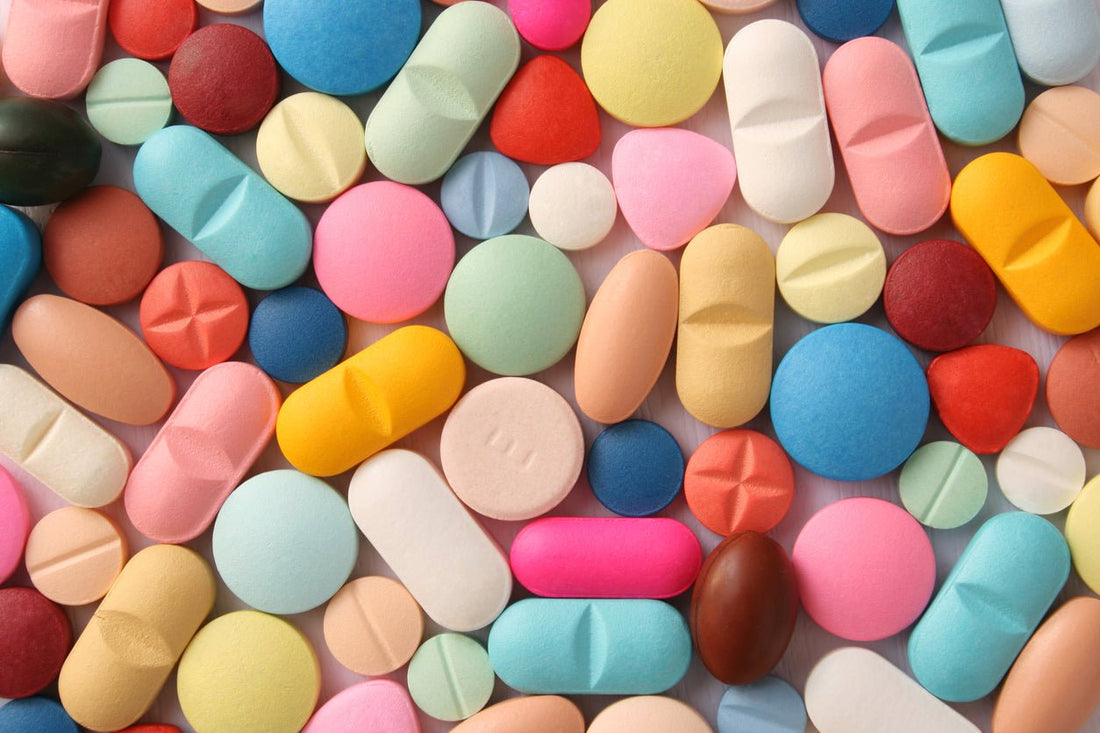You might be taking one or several dietary supplements a day and obviously, you hope they are doing you good. But are they, really?
Sometimes, there can be unwanted ingredients lurking in your supplements. While some of them are unintentional contaminants some can be intentionally added for various reasons by the manufacturers.
These substances are usually added to improve the aesthetics of the supplements. They give color to pills and capsules or make them shiny. They make gummy vitamins look and taste better or mask unpleasant odors of their ingredients. They can also act as fillings or avoid the ingredients from clumping together.
Sometimes, the manufacturers may add certain additives just to cut down the cost of the manufacturing process.
However, these ingredients can be harmful to your health, especially if you take them regularly—which you will, most likely. It’s a daily supplement at the end of the day (no pun intended).
We’re now going to discuss a few not-so-safe ingredients commonly found in supplements.
GMO oils (such as canola oil, soybean, or cottonseed oil)
Supplement manufacturers add hydrogenated oils to their products as fillers or preservatives. They can also be used for glazing your pills and gummies. Apart from the many health hazards of hydrogenated oils like the increased risk of heart disease and stroke , most of these oils usually come from genetically modified crops such as canola, soy, or corn.
GMOs are a controversial topic. Even the scientific community has a divided opinion on whether or not GMOs are harmful to human health. The truth is, we don’t know yet. It’s too early to say how unsafe they are or not. If you’re someone who is concerned about GMOs and their possible health risks, you might want to check the labels carefully for non-GMO claims.
If the label doesn’t specifically say it’s non-GMO, it probably means that it does contain GMO products.
Titanium dioxide
This is another very popular compound added to supplement pills and gummies to make them whiter and enhance their appearance. It was once considered a safe food additive but in May 2021, EFSA reported that it no longer approves this chemical to be added as an additive.
Do look out for it as Titanium dioxide can cause damage to organs such as the brain, kidney, and liver and it is also considered a possible cancer trigger. Despite these critical risks, some supplements still contain Titanium dioxide, and you should check the labels carefully before purchasing your supplements.
Sodium benzoate
Sodium benzoate is a substance that is commonly added to supplements as a preservative agent. If taken above recommended limits, this chemical can cause toxic effects on DNA and immune cells in particular. It can also trigger ADHD symptoms If taken in high amounts.
If you’re taking multiple supplements on a daily basis, and if they contain this preservative, the amounts can easily add up, eliciting unwanted health effects
Artificial sugars alternatives
Artificial sweeteners are another debatable topic in the food industry. Some say they are perfectly safe, while others are concerned about the possible health threats such as weight gain, brain tumors, and cancers. The research is still in its early stages to come to any conclusions about these sweeteners.

These include sugar substitutes like aspartame, sucralose, and Saccharin. They are added to the supplements during production to enhance their taste without adding extra calories. However, natural sugar is always better as it has a proven safety record, unlike artificial sugars which come, get debunked and go.
Toxic dyes
Manufacturers add artificial colorants to supplements to enhance their appearance. They make the supplements look appealing but these colouring agents can also be toxic.

These artificial dyes can initiate cancers, trigger hypersensitivity reactions, and cause behavioral issues. Examples include Blue 1, Blue 2, Red 40, Yellow 5, and Yellow 6.
Lead, mercury, and other heavy metals
Studies have found toxic heavy metal contaminants like mercury, lead, and nickel in supplements. Some of these heavy metals are known carcinogens while some of them have been reported to cause neuronal damage.
Dioxins, PCBs, and other environmental pollutants
Some supplements have been found to contain dioxins and PCBs (polychlorinated biphenyls). Dioxins are a type of chemical that is extremely toxic. They can harm the immune system, cause fertility issues, and result in cancer.
PCBs are another group of environmental toxins that cause a host of health effects such as DNA alteration, cancer, neuronal damage, and reproductive problems.
So how are these supplements regulated?
This may come as a shocker, but dietary supplements are not regulated by the FDA. According to their official website, they do not have the power to approve the safety and effectiveness of the supplements. They don’t even check the supplement label before it is sold.
It is up to the supplement company’s honesty and professional integrity to make sure these products meet safety and manufacturing standards.
It turns out not all supplement companies do this. For instance, one study evaluated three memory supplements and found that two of them included none of the active ingredients claimed, and the other contained seriously doubtful chemical contaminants.
This means you should look for the assurance of food safety certificates issued from organizations such as NSF, GMP, and BRCGS. Third-party testing services such as Eurofins offer reliable certificates that you can trust.

These authentications guarantee that the supplements actually contain all the ingredients listed and that all the substances in the products appear on the label. They also make sure that the impurities and contaminants are within the maximum allowable limits, so you don’t have to worry about them.





